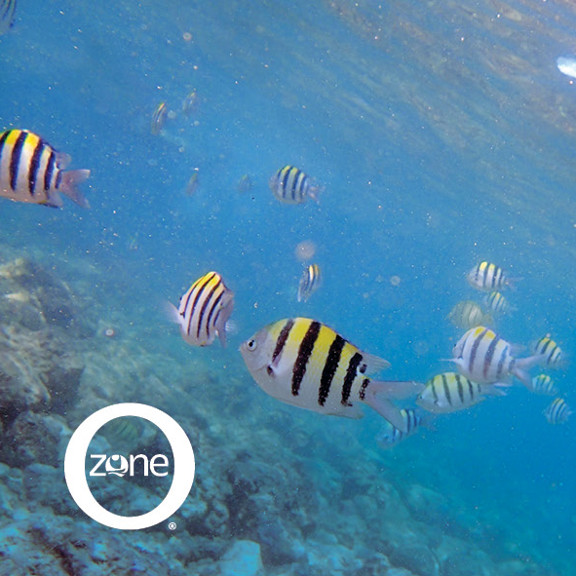언어 선택

산호초 안전을위한3 가지 큰 팁 * 및 * 태양 안전
많은 자외선 차단제에 귀중한 산호초에 해로운 화학 물질이 함유되어 있다는 소문을 들어보셨나요? 사실입니다. 실제로 하와이는 최근 화학 물질인 옥시벤존과 옥티녹세이트의 주 내 유통을 금지한 최초의 주가 되었습니다.
산호초는 바다의 복잡한 생태계를 지속적으로 건강하게 유지하고 해안선을 보호하는 데 필수적입니다. 산호초는 암, 심장병 및 기타 질병을 치료하는 신약의 원천이 되기도 합니다. 이러한 이유 때문에 저희는 에서 OZONE(아웃리거스 존)을 2014 론칭했습니다. OZONE은 산호초를 보존하기 위한 글로벌 보존 이니셔티브입니다.
산호초는 생존에 많은 위험에 직면해 있으며, 동시에 자외선은 우리 몸의 가장 큰 기관인 피부의 건강에 실질적인 위협이 되고 있어요! 그렇다면 어떻게 하면 산호초를 보호하고 의사의 지시를 따를 수 있을까요?
바다의 건강과 우리 몸의 건강을 동시에 지킬 수 있는3 팁을 알려드릴게요:
1. 보호 복을 착용하세요. 햇볕이 내리쬐는 야외에서는 얼굴과 어깨가 햇볕에 가장 많이 노출되는 부위인 경우가 많으므로 이를 가리는 것이 중요합니다. 챙이 넓은 모자와 소매가 촘촘하게 짜여진 천으로 된 셔츠를 착용하는 것이 좋습니다. 수영할 때는 수영용으로 디자인된 래쉬가드를 착용하세요. 그리고 선글라스도 잊지 마세요!
2. 그늘에 머무르세요 - 좋은 그늘. 하늘을 대부분 가릴 수 있는 큰 캐노피가 있는 나무, 건물이나 해변 텐트에 설치된 우산이 좋은 보호 그늘이 될 수 있습니다. 직사광선이 가장 해롭지만 모든 그늘이 똑같이 만들어지지 않았다는 점을 기억하는 것이 중요합니다. 자외선은 눈에 보이거나 느낄 수 없으며 물, 모래, 콘크리트, 심지어 잔디에서도 반사될 수 있습니다. 간접적인 햇빛에 노출되고 있는지 확인하는 좋은 방법은 하늘이 얼마나 보이는지 확인하는 것입니다. 하늘이 얼마나 보일수록 안전합니다. 구름은 자외선을 확산시킬 뿐 자외선을 차단하지는 못한다는 사실을 잊지 마세요.
3. 산호초에 안전한 자외선 차단제를 사용하세요. 안전한 자외선 차단제는 산화아연이나 이산화티타늄과 같은 성분을 사용하여 태양 광선을 반사하는 미네랄 자외선 차단제입니다. 이러한 유형의 자외선 차단제는 화학 자외선 차단제처럼 피부에 흡수되지 않습니다. 대부분의 드럭스토어에는 유해 화학 물질인 옥시벤존이나 옥티녹세이트(또는 옥틸메톡시신나메이트)가 함유되지 않은 자외선 차단제가 많이 있습니다. 즐겨 찾는 아웃리거 호텔에서도 산호초에 안전한 자외선 차단제를 구입할 수 있습니다. 점점 더 많은 소비자가 산호초 친화적인 제품을 선택함에 따라, 우리와 바다를 모두 안전하게 보호할 수 있는 자외선 차단제가 점점 더 많아질 것입니다.